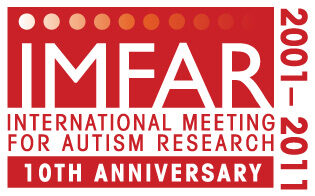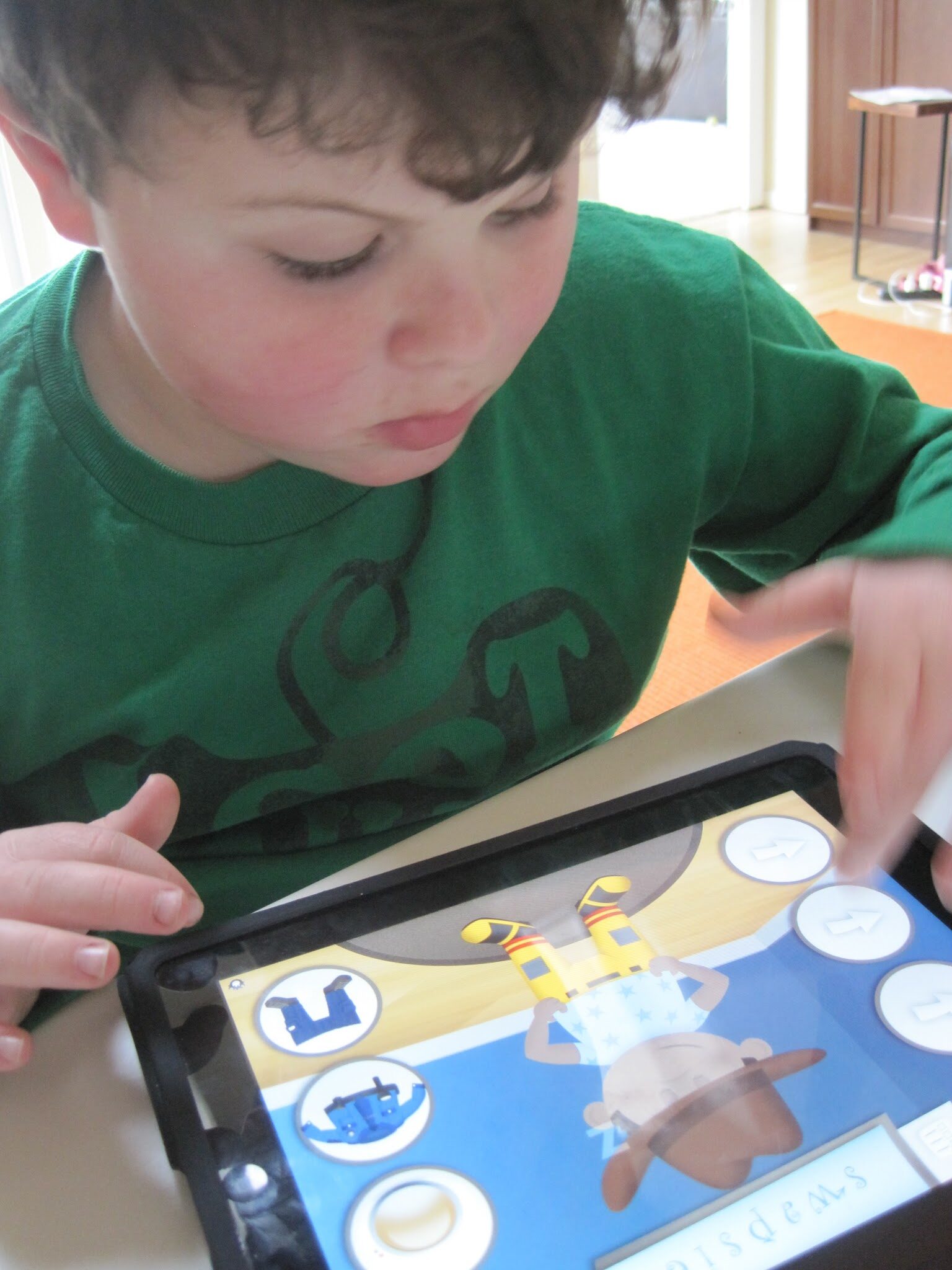San Diego’s Fox 5 covered the IMFAR press conference, including an interview with Shannon Des Roches Rosa:
Tag: research
Any omissions or errors are my own contributions. -SR S. Ozonoff, UC Davis MIND Institute Abstract: http://imfar.confex.com/imfar/2011/webprogram/Paper7878.html The study was a collaborative effort between UC Davis’s MIND Institute and the University of Colorado. We usually think of autism onset in terms of two categories: Autism symptoms that appear early in life, before 1st birthday, or A child who loses previously acquired skills after the first birthday Ozonoff’s study used home videos that were coded using objective methods to see when symptoms were first apparent, and how they unfolded over time. The study looked at two questions: Are two categories sufficient to describe onset? How do home video and parent reports correspond? For the home video method, parents gave the researchers all home video in which child appeared, from age 6 months through the second birthday. The researchers focused on four social/communication behaviors: Eye contact Social smiles Joint attention Language In…
Tom Insel Director, NIMH IACC update, since 2010 NIMH Director Tom Insel IACC is congressionally mandated, via the Combating Autism Act of 2006. Legislation will sunset in September 2011, unless the legislation is reauthorized. IACC has 23 members. It’s a diverse group — federal appointees, parents, autistic advocates, professionals. The IACC mission is to: Provide advice to the Secretary of Health and Human Services regarding Federal activities related to autism spectrum disorder. Facilitate the exchange of information on and coordination of ASD activities among the member agencies and organizations. Increase public understanding of the member agencies’ activities, programs, policies, and research by providing a public forum for discussions related to ASD research and services Strategic plan: Concept is to accelerate research process. Want to bring everyone to the table and agree on priorities. Established goals in seven critical research areas Plan gets updated every year, has 78 objectives altogether 16…
This session was introduced by Geri Dawson, and included a number of presenters, whose work I am only summarizing briefly. Again, any omissions or errors are my doing. -SR Chair: Geri Dawson, Chief Science Officer for Autism Speaks Why a specific focus on nonverbal kids with autism? Because they’re often not included in research — such kids can be difficult to test, especially when so many evaluation paradigms include verbal testing. As a result, little is known about why some kids with autism don’t develop spoken language, or even what best approaches are. Biggest challenge: Evaluating cognitive abilities! Lots of kids who appear to have intellectual disability do not, at least not to degree perceived. In 2008, Autism Speaks launched a special initiative focused on nonverbal autism, and in April 2010, NIH sponsored a workshop to address what we do know, and gaps in knowledge. We need understand that nonverbal…
Today’s press conference was incredibly rewarding — and had an information density not generally found in nature. Any errors or omissions in the skin-of-my-teeth transcript below are mine entirely. -SR More info: IMFAR sessions and panels [PDF] The Autism Science Foundation live-tweeted the press conference: @AutismScienceFD LeftBrain/RightBrain: IMFAR 2011: The Press Conference (Part 1) Presenters: David Amaral, Ph.D., President, the International Society for Autism Research Eric Courchesne, Ph.D., UCSD Antonio Hardan, M.D., Stanford University School of Medicine David Mandell, Sc.D., Chairman of IMFAR Program Committee Irva Hertz-Picciotto, Ph.D., UC Davis —- David Amaral MIND Institute, INSAR president (INSAR is the host of IMFAR). IMFAR was first held in San Diego in 2001, with 250 attendees. Expecting 2,000 attendees this year. Autism is an incredibly complex, wide range disorder that affects 1% of children. List of co-morbid disorders is long and debilitating. Still little certainty as to what causes autism, which…
TPGA Editor Shannon Des Roches Rosa will be at IMFAR, the International Meeting for Autism Research, for the next four days. She’ll be blogging as much of the conference as she can, right here at The Thinking Person’s Guide to Autism, starting with today’s 11 AM PST press conference — so stay tuned! The number of IMFAR sessions and panels [PDF] is incredible. If you want to make a case for a specific session Shannon should report on, leave a comment and she’ll do her best. Thanks again to the Autism Science Foundation for the travel grant that made Shannon’s attendance possible. And if you’re actually at IMFAR, do find our roving editor and say hello, or DM her on Twitter: @shannonrosa.
Shannon Des Roches Rosa www.thinkingautismguide.com www.squidalicious.com www.blogher.com Leo playing Swapsies While so many of us are waiting for our iPad2s, many (too many) kids with autism and other special needs are waiting to get any iPad — any iPad at all. Families who want to buy iPads privately often don’t have the means (these devices are expensive!), and school districts and insurance companies often cite the lack of longitudinal studies supporting the effectiveness of iDevices in special education. To address both areas, I’ve been updating our iPad Apps for Autism spreadsheet with links to iPad Fundraising & Donations, as well as Research & Education links. I’ve pasted in the current listings below, but will be updating and expanding the list as more resources come in — or are brought to my attention (hint, hint). If you want to help a child get an iPad, look through the Fundraising & Donations…
Emily Willingham daisymayfattypants.blogspot.com biologyfiles.fieldofscience.com Image by Countincr, from Wikimedia Commons Hannah Poling’s family entered the national spotlight when they revealed that Hannah’s autism-like symptoms may have been linked to a reaction to several childhood vaccines at once in combination with her mitochondrial dysfunction. Her case was not the first revelation of a possible mitochondrial disorder (MD)-autism spectrum disorder (ASD) link, but because of her ultimately successful vaccine injury suit, she became the avatar of the vaccines-cause-harm movement — which almost eclipsed the real scientific and therapeutic feature of her case: the mitochondria. About Those Mitochondria First, a little bit about mitochondria. A review paper, published in Molecular Psychiatry and open access, gives a fine and detailed overview, so my summary here is brief. The mitochondria do the heavy lifting for the cell’s energy needs. They take the chemical remains of what we eat and transfer that energy into molecules that…
Liz Ditz http://lizditz.typepad.com/i_speak_of_dreams/ http://lizditz.typepad.com/academic_remediation/ I have been thinking about this issue, and this post, for several days now, since a friend who is a science blogger sent on an email from the British Medical Journal (BMJ) about yesterday’s revelations alleging Andrew Wakefield’s fraud. I couldn’t speak or write about it, as the BMJ had strongly requested that the story not be made public (“embargoed”) until 4 pm January 5 2001 PST. That email had links to the full text of editorial, article, and references revealed yesterday. As I studied the material and references, one of the things that I kept in mind was the community that has grown up here at The Thinking Person’s Guide to Autism, and how we have managed to keep talking through differences of points of view and of opinion. I treasure that continued conversation and I believe it is one of the most valuable things…
Here at the Thinking Person’s Guide to Autism, we’re about (a) having fun with our families (b) evidence-based approaches to autism (d) innovative fund-raising and (c) social media. So naturally we are participating in The Autism Science Foundation’s campaign, Recipe4Hope. There are a lot of needs in the autism community, but we believe that funding sound autism research comes high on the list. So won’t you join us? Every dollar donated to the Autism Science Foundation from now through December 31 will go directly autism research. This video (1 min 13 seconds) explains the campaign. For those of you who aren’t familiar with the Autism Science Foundation, here’s a short statement of its goals: The Autism Science Foundation funds scientific research to find the causes of autism and to develop treatments that will make a difference in the lives of children, teens and adults. This holiday season, outstanding research is…




